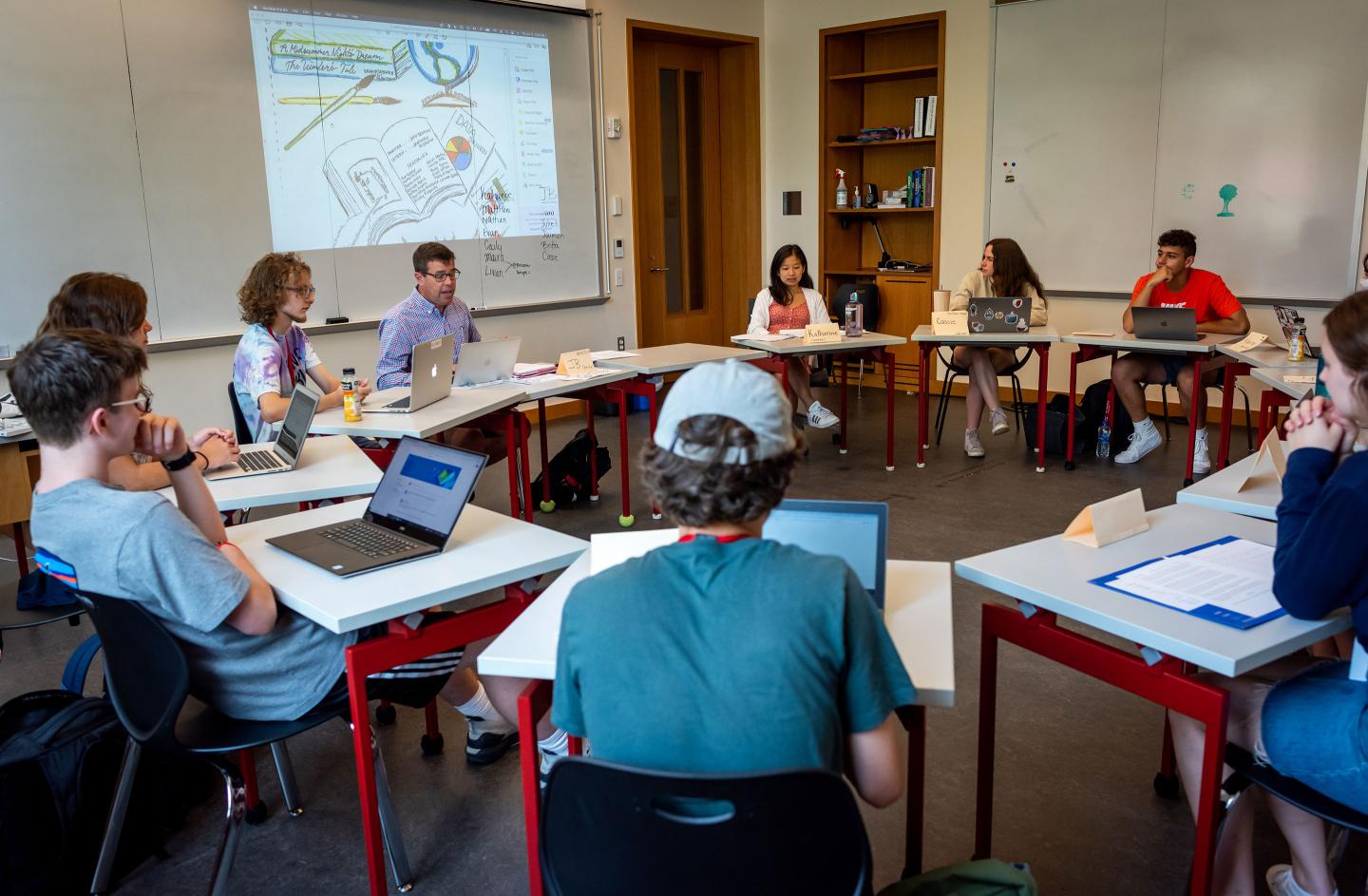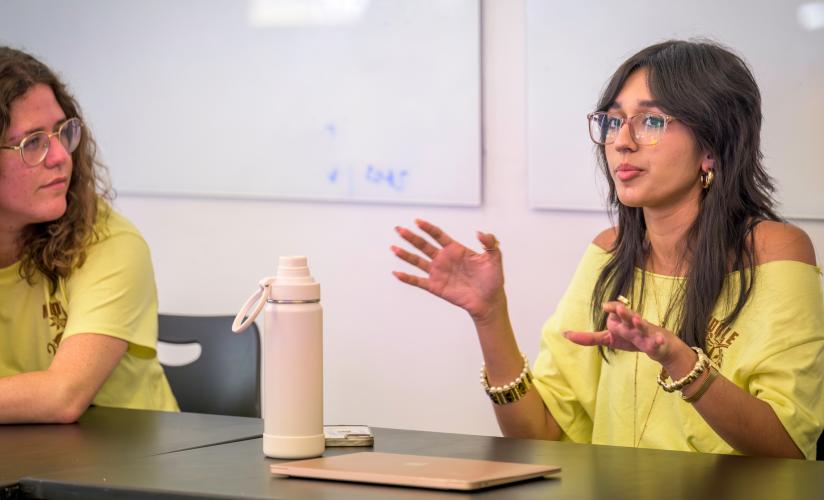

The ASP Writing Workshop teacher reflects on thinking made visible.
BY KATE DUNLOP
John “JB” Bouton has been an independent school English teacher for more than 30 years. For 11 summers, he’s extended his academic year by teaching Writing Workshop at the SPS Advanced Studies Program — the course meets three times a week and focuses on developing voice and confidence in the writing process. A constructivist by nature, Bouton strives to make students the architects of their own education, using real world examples to engage them in the experiential part of studying English. His enthusiasm for the subject overflows, but as much as he loves literature, he most wants students to see his belief in them and to realize that they have something to say.
What keeps you coming back to the ASP?
It’s great to be part of a second educational community — I love the environment of being able to have small classes and the facilities in a place like St. Paul’s School. I work with talented colleagues and students who really appreciate the opportunity to partake of all the wonderful resources that the School has to offer. What really keeps me coming back, though, is the feeling I get here — it’s about how nurturing these grounds are and how open to experimentation and curiosity and a kind of natural innovation that seems to happen during ASP.
In addition to studying a main course, every ASP student takes Writing Workshop. What can you tell us about it, and why is it important?
The workshop is rooted in the personal essay as a place for students to learn about their writing process. I’m looking for meaningful creation through the alchemy of transforming an everyday experience into something memorable, maybe even transcendent. Clear, powerful and precise writing – that’s the goal. We read masterful contemporary essays to model exemplary work and ask students to learn techniques that those writers have used. There are scaffolded and framed prompts every time we do a personal essay, but what I really enjoy is when students make that work their own.
Because of the small class sizes and the intensity and intimacy of living in community with one another for the summer, there’s an opportunity to build trust — to realize that your teacher is your collaborator and editor in the writing process rather than an authority figure grading you makes a huge difference.
Students are increasingly savvy and practical about wanting to try to yield a college essay out of all this effort, and a college essay is simply a really good personal essay. So, we talk about how one would revise and shape a piece written here for that audience.
What would you like people to know about your ASP students?
They’re consistently an earnest group that grows dramatically during the experience of being in small classes with teachers who give them feedback constantly. For the most part, they have good basic skills, and some are quite fluent as writers.
Since COVID, I think kids are increasingly anxious and in need of some faith that we’re going to endure. They’re looking for people who believe in them, who want to see the best parts of them. They want to feel acknowledged and seen. They’re looking to be taken seriously and they’re willing to put themselves out there in their writing.

Writing Workshop class

John Bouton working one-on-one with a student
Sailing is very important to you. Do you find any parallels between that endeavor and writing?
Good writing is clear thinking made visible, as they say, and so anything we do to make students more fluent and confident in their writing will ultimately turn them into better critical thinkers. Writing holds benefits for all of us to make sense of ourselves and others.
I do relish the elemental nature of sailing and can liken tacking and jibing to lines of poetry. I often think about the fluidity of moving through the water as analogous to what’s happening in a state of flow in writing. And, in both, you’re trying to get somewhere — with writing, you’re getting thoughts from your head onto the page to be shaped into something purposeful and meaningful.
What have you learned about teaching?
Whenever possible, make it a student-centered class and never do for students what they can do for themselves. Going where their interests lie is way more enriching and powerful than my being the sage on the stage. When students come up against a really challenging topic, they need to know they can just sit and be curious about it for a while.
There’s nothing I like better than sitting down with kids and talking about writing. I think I have the greatest job in the world.



